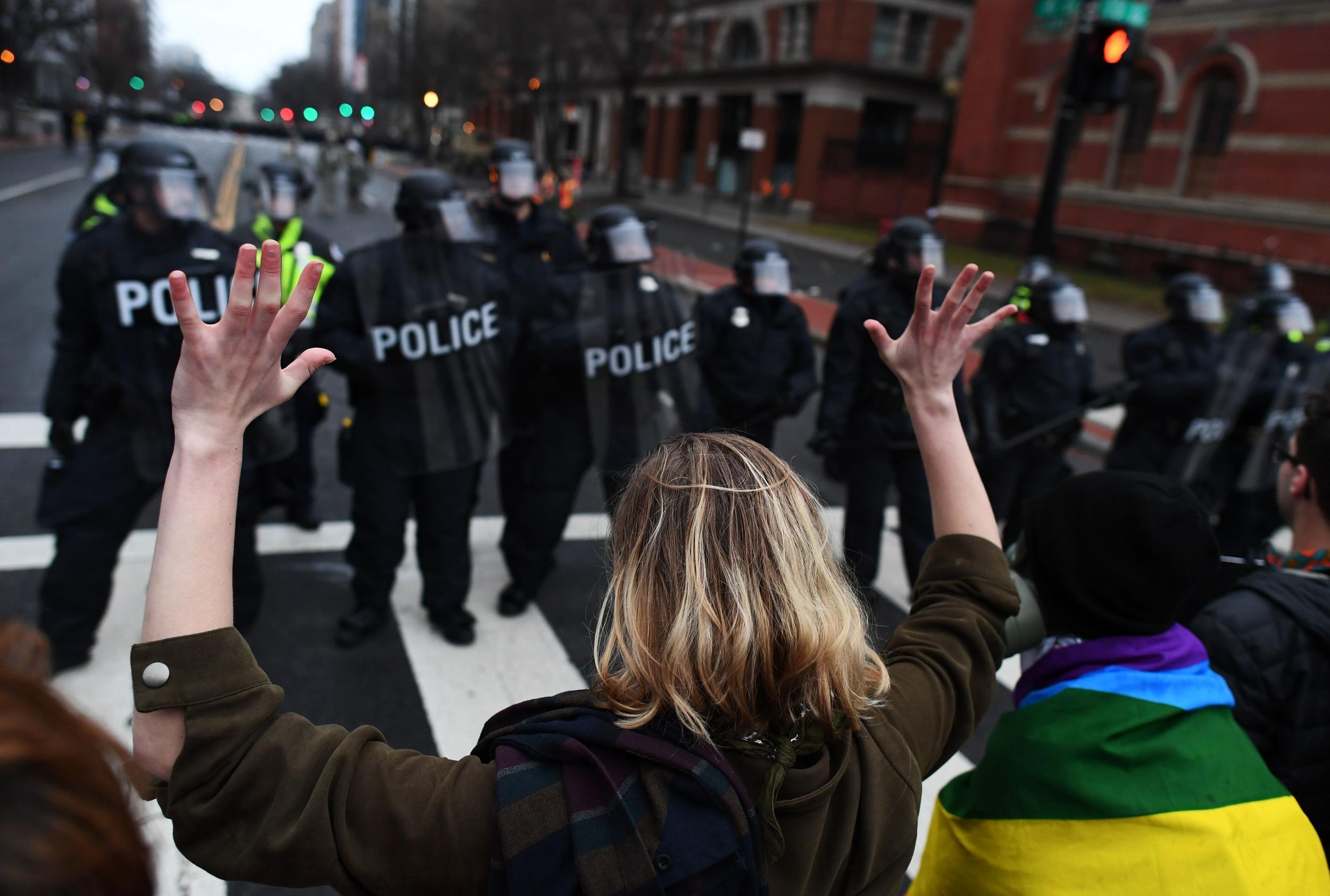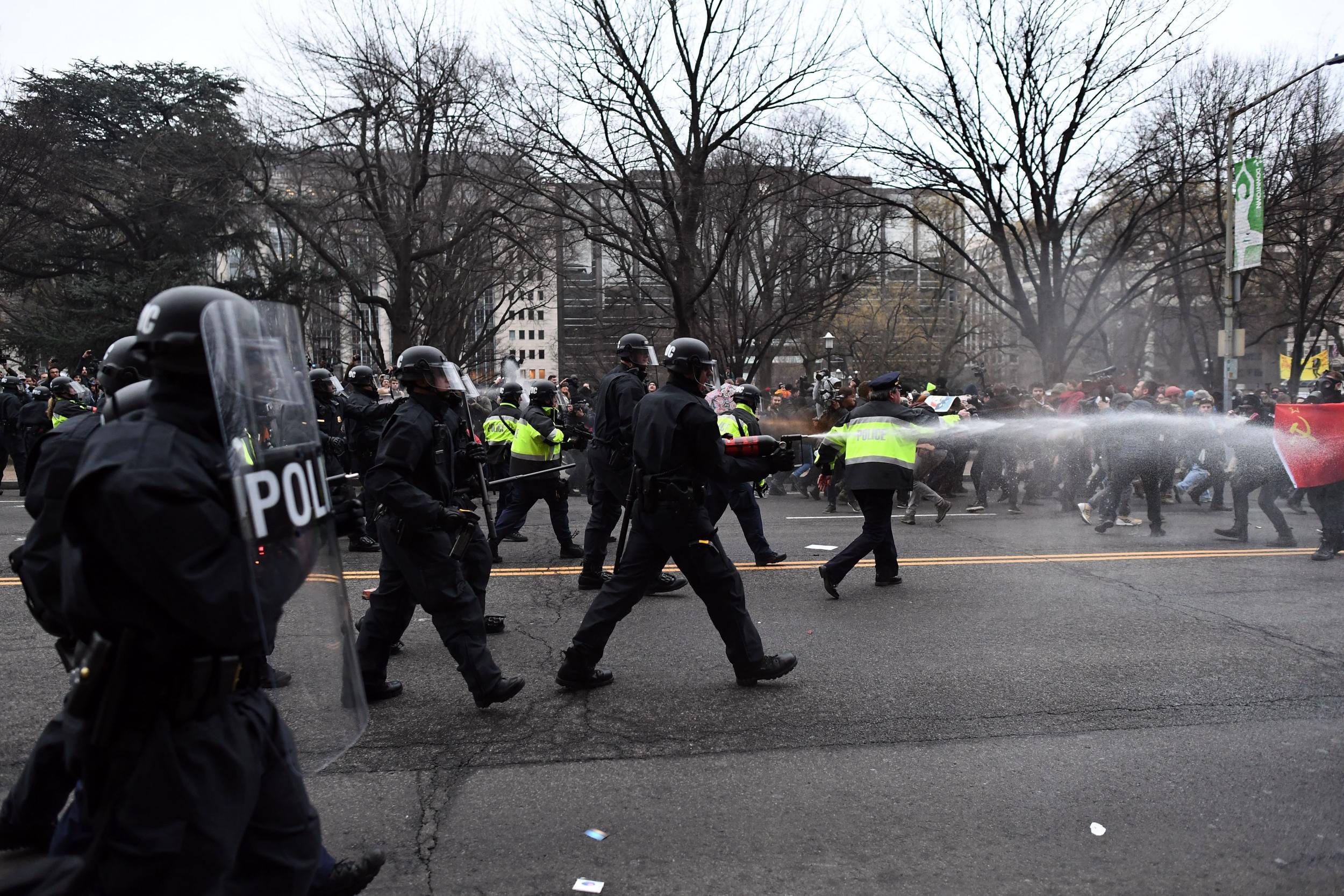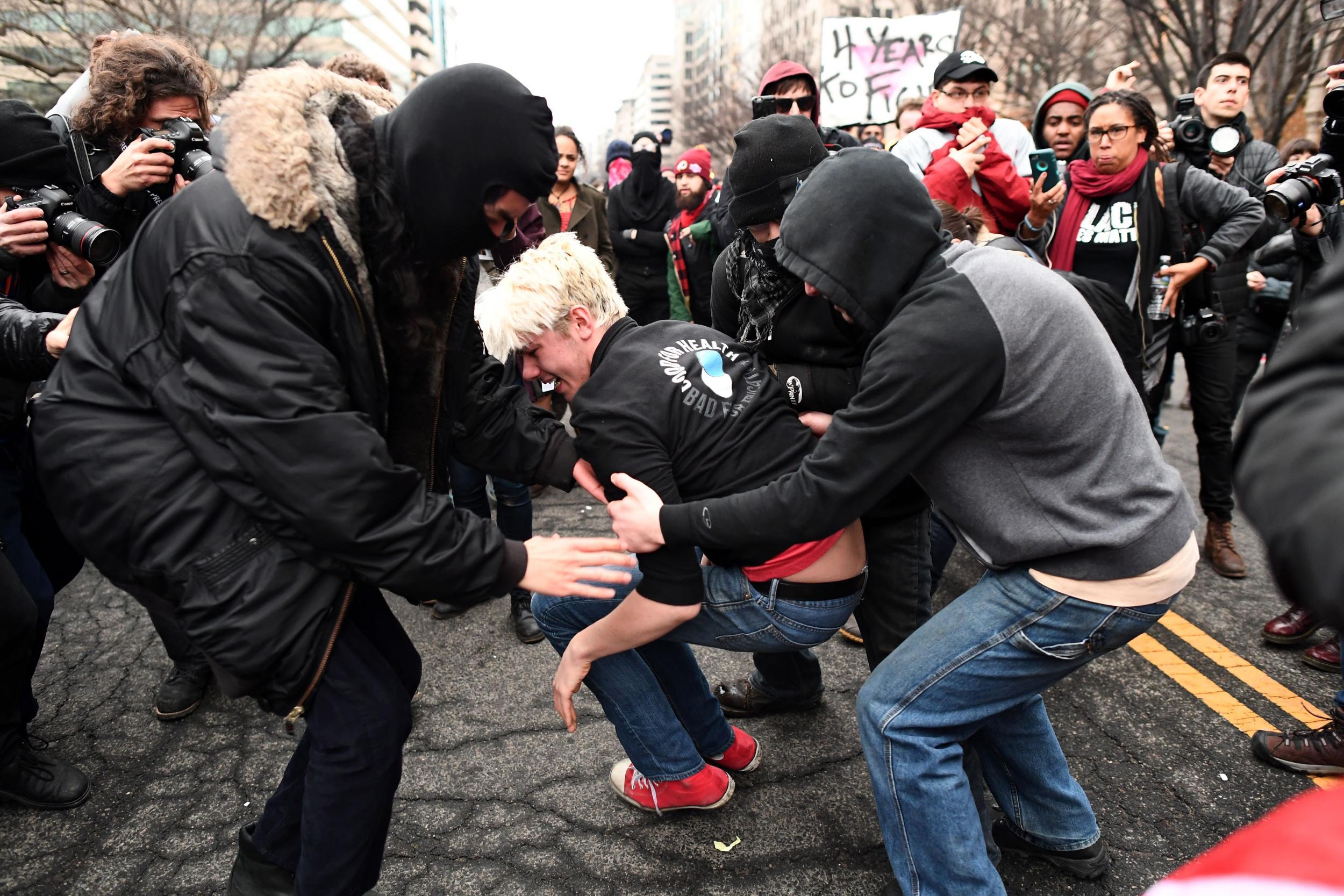J20 protests: All you need to know about the nearly 200 people facing 60 years in jail for protesting Trump
The so-called J20 defendants have started their trial

On 20 January, 2017, thousands of people poured into Washington DC to protest Donald Trump’s inauguration. Nearly half a million people brandished signs and shouted slogans for the Women’s March. Thousands of protesters sparked up joints for a "Trump 420" protest in Dupont Circle. And hundreds marched in an anti-capitalist, anti-fascist rally organized by Disrupt J20.
Only the participants in the latter, however, now face up to 60 years in prison for their actions. Nearly 200 participants in the Disrupt J20 protest have been charged felony rioting. Among them are journalists, nurses, and dozens of others who say they did nothing illegal.
The first seven of the participants – now collectively known as the “J20 defendants” – stand trial on Wednesday. Read on for everything you need to know about these defendants, and the rest of the case.
What were the Disrupt J20 protests?
The Disrupt J20 protests consisted of several different activities scheduled for Inauguration Day – a “Festival of Resistance”, as organisers called it. The activities included a permitted march, an “Anticapitalist Bloc” march, and protests at various Secret Service security checkpoints.
The goal, organizers wrote on their website, was to “give expression to the massive opposition to Trump’s right-wing, racist, and misogynist agenda”.
“Organizers intend to demonstrate that people of conscience are the majority, and take steps towards organizing that sentiment into a force that can have an impact on Trump’s ability to claim a mandate, setting a tone of resistance for the coming years,” they wrote.

Why were participants arrested?
On the day of the inauguration, hundreds of Disrupt J20 protesters – many of them dressed in black – began marching down 13th Street, toward the inauguration parade route. During this time, some of the protesters broke off from the pack and began breaking windows of businesses nearby.
The protesters arrived at Franklin Square shortly after Mr Trump’s swearing-in. According to the Washington Post, some of the protesters threw rocks, bricks, and chunks of concrete as they walked. Other protesters assaulted a limousine driver, destroyed a government vehicle and committed other "violent and destructive acts," according to an indictment.
As the protesters headed north, they were surrounded by Metropolitan Police Department officers, who swept them up in a formation known as a “kettle”. Four of the protesters have since filed a lawsuit claiming they were held in the kettle for seven to 16 hours, without food, water, or bathroom facilities. The police department said the allegations would be full investigated.
A total of 217 people were arrested in connection with the protests, according to DC Interim Police Chief Peter Newsham. Mr Newsham claimed the protests caused “significant damage to a number of blocks in our city.” The US Attorney's Office for DC later estimated the damage at more than $100,000.

What were participants charged with?
In the month following the protest, more than 200 participants were indicted on felony riot charges. In April, the Superior Court of the DC handed down a superseding indictment, which added even more charges for 212 of the defendants. These charges included felonies such as inciting or urging to riot, rioting, conspiracy to riot, and destruction of property.
A handful of protesters agreed to a plea deal after the additional charges were handed down. They now face fewer than 10 years in prison. Just this week, the government lessened the charges of seven defendants who were set to go on trial in December, reducing their six felony and two misdemeanour charges to only three misdemeanour charges.
The majority of the defendants, however, still face up to 60 years in prison if found guilty.

Why is the case controversial?
The J20 case has caught the eye of activists, lawyers, and civil rights groups. The ACLU is representing the protesters suing the police department, and has also tried to file an amicus brief in the criminal case against the participants.
Scott Michelman, a senior staff attorney at the ACLU of the District of Columbia, told The Independent that the case poses a threat to American’s First Amendment rights.
“There is a serious potential that these prosecutions will have a chilling effect on future protestors who will be scared to use their First Amendments rights,” Mr Michelman said. “…Other protestors are going to starting wondering whether they are safe from police and from prosecutors.”
Mr Michelin said the core issue in the case is whether one can be punished for simply attending a march in which illegal activity occurred. The question, he said, “is whether the people who were simply swept up in the police roundup had an intent to break the law… or whether they were simply exercising their First Amendment rights.”
He added: “It’s not a crime to be in the streets and raise your voice. It’s not a crime to wear black.”

Who are the defendants?
The first wave of defendants started trial on Wednesday. The seven defendants – Jennifer Armento, Oliver Harris, Britt Lawson, Michelle “Miel” Macchio, Christina Simmons, Jayram Toraty, and Alexei Wood – all volunteered to make their cases first.
Ms Lawson is a registered nurse from Pittsburgh, who attended the protest to serve as a volunteer medic. She risks losing her nursing license in Pennsylvania if found guilty.
Ms Lawson told ThinkProgress that the process has been “stressful,” but that she found it “pretty inspiring to see the amount of solidarity and the ways in which defendants have come together and stayed fairly strong throughout this”.
Mr Woods, meanwhile, is a multimedia journalist who says he was covering the J20 protest as a freelancer. In a livestream video that Mr Woods took at the event, he can be seen identifying himself to police as a member of the press. He was arrested regardless, along with at least nine other journalists.
“I think these charges are just f***ing absurd … I feel like I have an utterly strong case just like everybody else,” Mr Wood told the San Antonio Current in July. “It was indiscriminate arrest. I’m ready to fight.”
Join our commenting forum
Join thought-provoking conversations, follow other Independent readers and see their replies
Comments
Bookmark popover
Removed from bookmarks